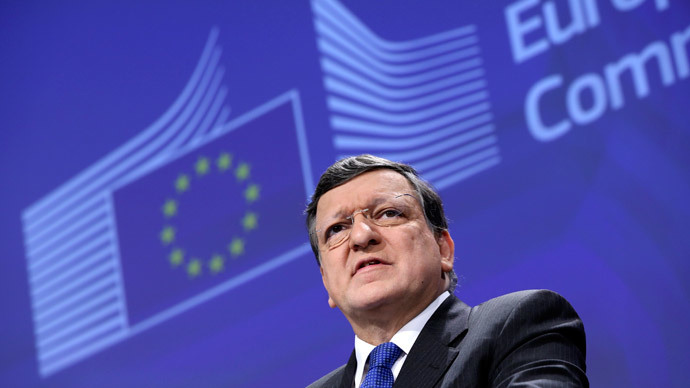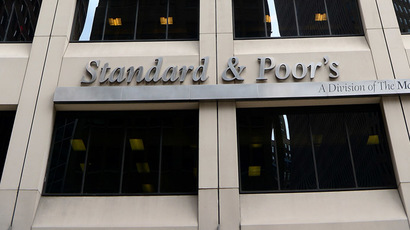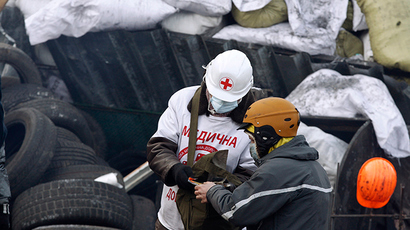EU proposes 11 billion euro in financial aid to desperate Ukraine

The European Commission has proposed an 11 billion euro helping hand to cash-strapped Ukraine. European Commission President Jose Barroso said Kiev will get the money if it agrees a deal with the IMF, which normally includes drastic austerity measures.
Jose Barroso announced the Commission's plan on Wednesday, and the full statement is available on the institution's website.
Funding will be significantly sourced from the IMF and the World Bank. Accepting IMF money will mean many sacrifices for Ukraine’s economy, which are likely to include increased gas bills, frozen government salaries, and all around budget cuts.
Up to 8 billion euros will come from the European Investment Bank and the European Bank of Reconstruction, and 3 billion euros will be sourced from the EU budget- about half in macro financial assistance loans and half in grants. Another 3 billion euro will be raised through the Neighborhood Investment Facility.
The figure matches Russia's earlier $15 billion proposal, but falls short of $35 billion Ukraine says it needs to survive through 2015.
On Tuesday, Secretary of State John Kerry said the Obama administration will offer $1 billion in loan guarantees.
Ukraine’s acting Finance Minister Yuriy Kolobov said that Ukraine's economy need $35 billion by the end of 2015.
The funds will help Ukraine pay off its outstanding debts, including those to Russia's Gazprom, to which it owes $2 billion.
Ukraine's parliament has signed off on the terms of a earlier 610 million euro EU aid package - but that money won't be paid until Ukraine seals a bailout deal with the IMF.
A concrete figure may also have to wait until after a new president is elected on May 25, in order for the IMF to ensure they are issuing loans to a stable government.

The IMF failed to come through with a loan of 10-15 billion euro last August, a reason why ousted-President Viktor Yanukovich turned to Russia in December, and signed a $15 billion loan deal. This deal is on hold until Kiev forms a legitimate government, Moscow says.
US Secretary of State John Kerry, while in Kiev yesterday, announced $1 billion in energy aid to Ukraine, which will focus on meeting Ukraine’s “four most pressing needs” - economic reforms, holding elections, fighting corruption, and protecting against “politically motivated trade actions by Russia”, according to the statement released by the White House on Tuesday.
The shift comes after Moscow announced it will no longer offer its neighbor discounted gas prices, which yesterday, in his first public appearance since President Yanukovich of Ukraine was ousted, Russian President Putin maintained that the measures were not political, but economic.
Gazprom, Russia’s largest natural gas producer, is waiting for Naftogaz to pay a $1.5 billion debt, which Putin said, for a company, isn’t “commercially viable” as it has expenditures it must cover.
Yesterday, Gazprom CEO Aleksey Miller said it was possible to give Ukraine a $2-3 billion loan to cover its unpaid bill.
The $1 billion in aid from the US will help Ukraine “find new export markets and adjust to trade pressures” as well as help the country achieve its goal to become more energy independent.
Ukraine faces massive debts, and, by its own admission, has a nearly empty treasury. The country is due to pay off more than $60 billion in debt this year, or about a third of the country’s GDP.














